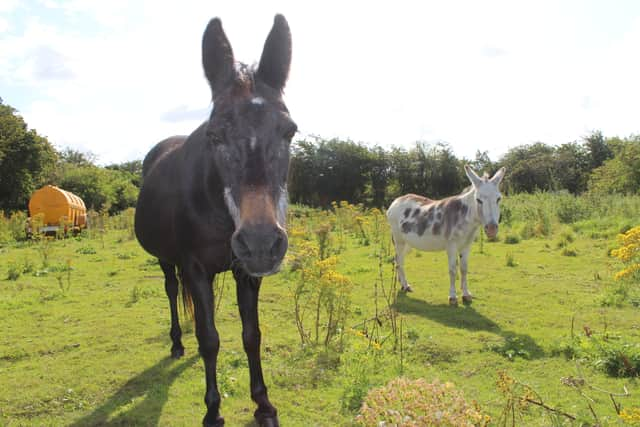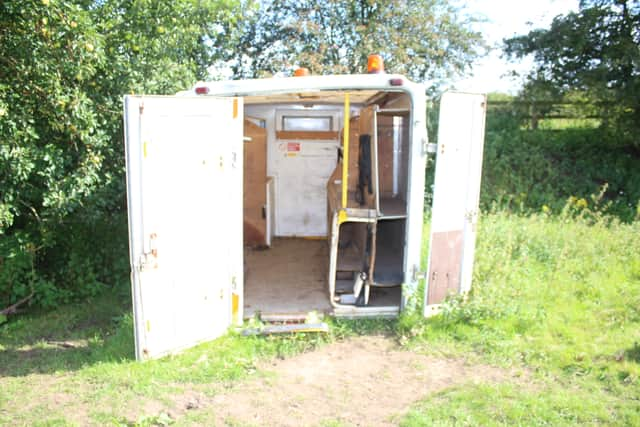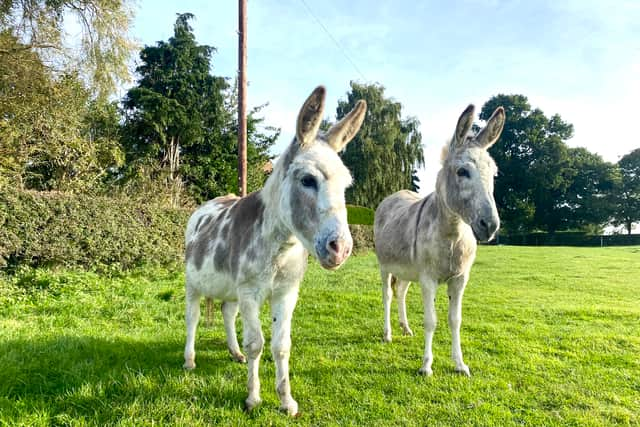RSPCA: Woman loses neglect conviction appeal over donkeys found in 'hazard-strewn' field full of toxic plants
and live on Freeview channel 276
Two neglected donkeys rescued from a ragwort-ridden field in East Yorkshire are thriving at their new sanctuary home - after losing their mule companion to painful dental issues.
Their former owner Susan Shears, from Gowdall, has this week lost her appeal to have her neglect conviction overturned.
Advertisement
Hide AdAdvertisement
Hide AdThe 75-year-old had previously denied seven animal welfare offences relating to two donkeys called Dora and Daisy and a mule called Ebony, but was found guilty after a trial in 2021.
She was given a 20-week prison sentence, suspended for two years, banned from keeping equines for life and ordered to pay costs of £3,000 - and an extra £2,000 after losing her appeal.


The prosecution was brought by the RSPCA after Dora, Daisy and Ebony were discovered living in a hazard-strewn environment full of ragwort - a plant that is toxic to horses and donkeys.
Shears had previously been offered help and advice on how to improve the animals’ welfare by both RSPCA inspectors and welfare advisers from The Donkey Sanctuary, but this had been ignored.
Advertisement
Hide AdAdvertisement
Hide AdAt her trial, the court heard police had to force entry to the field using bolt cutters, and gave permission for RSPCA inspector Thomas Hutton, staff from The Donkey Sanctuary and an independent vet to enter the field and examine the three animals and their environment.


They discovered the animals' shelter was an old disused work container, which was too small and had sharp edges and canvas straps they could become caught on still attached inside.
Their water supply was dirty with algae growing in it, and all three had overgrown teeth and hooves that needed dental and farrier treatment.
The animals were seized by police and passed into the RSPCA’s care after the vet who examined them said they were either suffering or likely to suffer if they were not removed.
Advertisement
Hide AdAdvertisement
Hide Ad

Donkeys Dora and Daisy responded well to treatment, the charity said, but due to their age and special needs they remained in the care of The Donkey Sanctuary. Ebony was put to sleep on veterinary advice due to dental issues that were causing her ongoing suffering.
RSPCA inspector Hutton said he was pleased the long-running case is now over. "Shears failed in her duty towards these animals and they suffered as a result," he said.
"Thanks to The Donkey Sanctuary’s care and expertise, they are now enjoying their lives and it’s fantastic to see them looking well."
The Donkey Sanctuary's head of welfare Hannah Bryer said both donkeys had ongoing care and veterinary needs, and over the past four years they had continually monitored their health and response to treatment.
Advertisement
Hide AdAdvertisement
Hide AdUnfortunately, she said earlier this year Daisy developed a painful, degenerative eye condition. "After consultation with vets, it was decided the best course of action was to remove her eye," she added.
"Daisy has recovered well from this operation, and we will continue to regularly assess their quality of life to ensure decisions are made with their best interests at heart."
Comment Guidelines
National World encourages reader discussion on our stories. User feedback, insights and back-and-forth exchanges add a rich layer of context to reporting. Please review our Community Guidelines before commenting.
